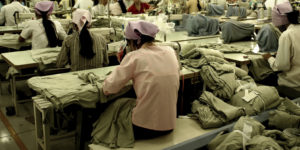A New KCG Study on Consumer Reactions towards Supplier Hypocrisy in Global Supply Chains
Challenged by the contemporary, strongly competitive, marketplace, companies have increasingly tried to build up resilient relationships with their customers. Many of them engage in corporate social responsibility (CSR) as an essential channel to improve a brand’s reputation and to strengthen consumers’ confidence and trust towards the firm. However, companies do not always act in line with rules and standards set and can even engage in corporate social irresponsibility (CSiR). Consumers may react to such incidents with moral outrage and engagement in a variety of activities, such as spreading negative information about the company concerned to friends and families, suing the company, devaluing the brand, and engaging in protests or consumer boycotts. All these may cause loss in reputation or even in revenue of the company concerned.
A specific case of CSiR—and, from a moral standpoint, a particularly severe type of CSiR—is corporate hypocrisy. Corporate hypocrisy is defined as “the belief that a firm claims to be something that it is not (Wagner et al., 2009: 59).” The firm’s observable actions differ from its observable statements and it “does not practice what it preaches (Monin and Merritt 2012: 170)”, thereby violating its own communicated ethical or moral standards. In other words, firms strive to uphold a reputation of being socially or environmentally responsible yet act in the opposite manner.
A new KCG study “Chain of Blame: A Multi-Country Study of Consumer Reactions towards Supplier Hypocrisy in Global Supply Chains” examines the impact of the hypocritical behavior of firms’ suppliers on the firm itself and analyzes how sourcing from hypocritical suppliers influences consumers’ perceptions of the firm and their behavior as reaction. Based on comparable experiments conducted in Germany, China and South Africa, the analysis shows that following a “Chain of Blame”, consumers hold the firm responsible for sourcing from hypocritical suppliers. Consequently they tend to lower the firm’s reputation ratings and even intent to boycott the firm. The core finding that consumers consistently hold firms responsible for their suppliers’ hypocritical behavior is robust despite the existent economically and socially heterogeneity among consumers from different countries. The analysis further identifies the origin of the supplier and consumer ethnocentrism as nationally-variant promoting factors of consumers’ boycott intention and shows that the influence of those factors is contingent on consumers’ expectations towards foreign vs domestic firms.
The paper “Hoffmann, N.C., Yin, J., and Hoffmann, S. (forthcoming), Chain of Blame: A Multi-Country Study of Consumer Reactions towards Supplier Hypocrisy in Global Supply Chains, Management International Review” is available here.




 KCG Projects
KCG Projects


